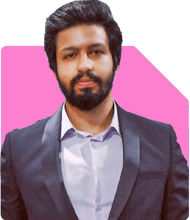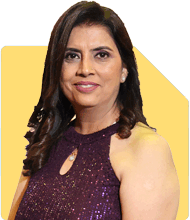Ramalingam Kalirajan |2834 Answers |Ask -Follow
Mutual Funds, Financial Planning Expert - Answered on Apr 30, 2024
He has an MBA in finance from the University of Madras and is a certified financial planner.
He is the director and chief financial planner at Holistic Investment, a Chennai-based firm that offers financial planning and wealth management advice.... more

Sir, I have purchased a house of 2160000 at 9% home loan compound interest and my monthly emi is 19400 approx and I have also rented the appartment out at 12500 , so basically I have to pay 7k per month to complete emi from my pocket, my in hand salary is 44k and my age is 29 , I have to give 11000 rent to my landlord and plus 8000 expenses and I also help my parents giving 10k each month so I almost left with 10k month approx by the time of next month salary credit. Can I do something more to save for future?
Budgeting: Start by reviewing your expenses and identifying areas where you can cut back. Look for any unnecessary spending or subscriptions that you can eliminate. Creating a budget can help you track your expenses more effectively and ensure that you're making the most of your income.
Emergency Fund: Building an emergency fund should be your top priority. Aim to save at least three to six months' worth of living expenses in an easily accessible savings account. This fund will provide you with a financial safety net in case of unexpected expenses or emergencies.
Investment Opportunities: Consider exploring investment options that can help grow your wealth over the long term. Look into mutual funds, stocks, or other investment vehicles that align with your risk tolerance and financial goals. Starting with small, regular investments can gradually build up your portfolio over time.
Additional Income: Explore opportunities to increase your income outside of your regular job. This could involve freelancing, part-time work, or starting a side business based on your skills and interests. Any additional income you earn can be directed towards savings and investments.
Review Loan Options: Since a significant portion of your income is going towards your home loan, consider exploring options to refinance or renegotiate the terms of your loan to potentially lower your monthly payments. However, be sure to carefully evaluate the terms and any associated costs before making any decisions.
Financial Planning: Consider consulting with a financial advisor to help you develop a personalized financial plan. They can provide valuable insights and guidance tailored to your specific situation and goals, helping you make informed decisions about saving, investing, and achieving financial security for the future.
Remember, the key to financial stability is consistency and discipline. By taking proactive steps to manage your finances and prioritize saving, you can work towards a more secure and prosperous future.
You may like to see similar questions and answers below
Sanjeev Govila |458 Answers |Ask -Follow
Financial Planner - Answered on Feb 06, 2024
Ramalingam Kalirajan |2834 Answers |Ask -Follow
Mutual Funds, Financial Planning Expert - Answered on Apr 05, 2024
Ramalingam Kalirajan |2834 Answers |Ask -Follow
Mutual Funds, Financial Planning Expert - Answered on May 09, 2024
Ramalingam Kalirajan |2834 Answers |Ask -Follow
Mutual Funds, Financial Planning Expert - Answered on May 15, 2024
Ramalingam Kalirajan |2834 Answers |Ask -Follow
Mutual Funds, Financial Planning Expert - Answered on May 20, 2024
Mohit Arora |45 Answers |Ask -Follow
Dating Coach - Answered on May 21, 2024
Anu Krishna |886 Answers |Ask -Follow
Relationships Expert, Mind Coach - Answered on May 21, 2024
Anu Krishna |886 Answers |Ask -Follow
Relationships Expert, Mind Coach - Answered on May 21, 2024
Shalini Singh |70 Answers |Ask -Follow
Dating Coach - Answered on May 21, 2024
Geeta Ratra |132 Answers |Ask -Follow
Visas, Study Abroad Expert - Answered on May 21, 2024
Rajesh Nair |12 Answers |Ask -Follow
Hiring, Leadership Expert - Answered on May 21, 2024
Ramalingam Kalirajan |2834 Answers |Ask -Follow
Mutual Funds, Financial Planning Expert - Answered on May 21, 2024
Ramalingam Kalirajan |2834 Answers |Ask -Follow
Mutual Funds, Financial Planning Expert - Answered on May 21, 2024
Ramalingam Kalirajan |2834 Answers |Ask -Follow
Mutual Funds, Financial Planning Expert - Answered on May 21, 2024
Ramalingam Kalirajan |2834 Answers |Ask -Follow
Mutual Funds, Financial Planning Expert - Answered on May 21, 2024




























